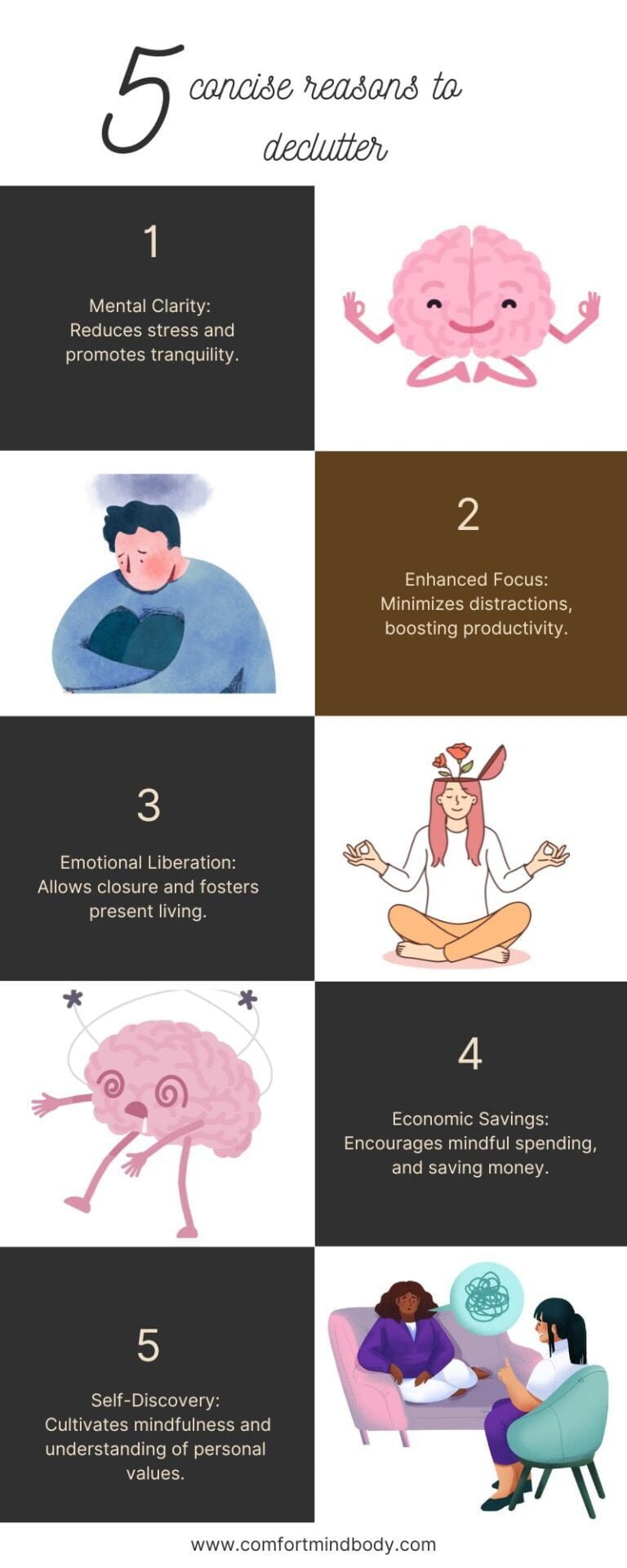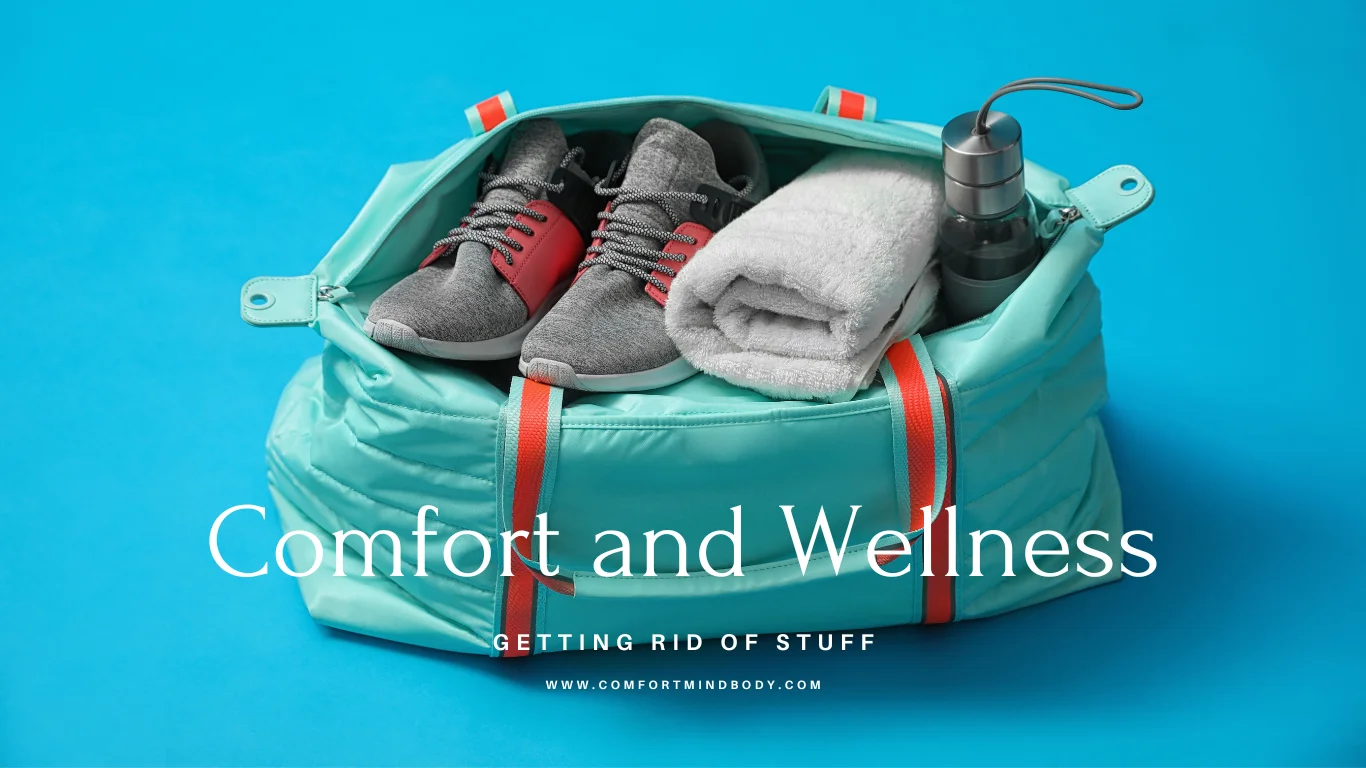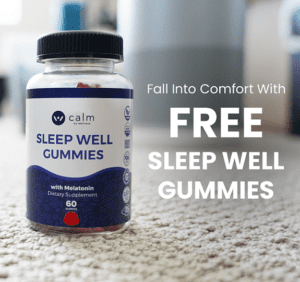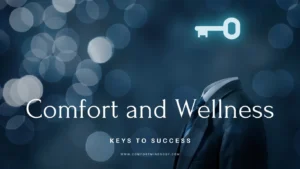Getting rid of stuff
In recent years, the concept of decluttering has taken a front seat in the realm of personal well-being and home management. With the rise of minimalist living advocates like Marie Kondo, more individuals are exploring the liberating act of letting go of the excess in their lives.
Decluttering goes beyond merely tidying up; it’s about making mindful decisions on what to keep and what to discard, thereby creating a space that reflects serenity and intentionality. This article delves into the psychological, emotional, and practical benefits of decluttering, aiming to unveil how this simple act can pave the way to a happier and more contented life.
Psychological Benefits
Control and Autonomy
One of the primary psychological benefits of decluttering is the sense of control and autonomy it instills. Our surroundings significantly impact our mental state, and a cluttered environment often mirrors a cluttered mind. When we take the reins and decide to declutter, we are essentially exercising control over our environment, which in turn, provides a sense of autonomy.
Few tips on decluttering
Gaining control over one’s environment: A cluttered space can feel chaotic and overwhelming. The act of decluttering allows individuals to regain control over their environment, making it more conducive to relaxation and peace. By methodically going through possessions and deciding what stays and what goes, individuals can create a space that aligns with their personal values and preferences.
Making choices about what to keep and what to discard: The process of decluttering is filled with decision-making. Each item in question requires a decision: keep or discard? These decisions, albeit small, contribute to a larger sense of autonomy. Over time, individuals become more adept at making such decisions, which can translate to improved decision-making skills in other areas of life.
Reduced Anxiety and Stress
The correlation between a cluttered environment and increased levels of anxiety and stress is well-documented. A study published in the Personality and Social Psychology Bulletin found that individuals who described their homes as cluttered experienced higher levels of stress.
The link between clutter and anxiety: Clutter can act as a constant reminder of tasks yet to be completed, leading to feelings of anxiety and overwhelm. The visual chaos can trigger a stress response, making it difficult to relax. Moreover, clutter can also hinder our ability to process information as our senses get overloaded with stimuli. By decluttering, individuals can reduce these stress triggers, creating a more harmonious environment.
How a tidy environment promotes calmness: A tidy, well-organized space can promote a sense of calm and well-being. The act of cleaning and organizing can also be therapeutic, providing a sense of accomplishment and order. Furthermore, a decluttered space can serve as a sanctuary from the hustle and bustle of daily life, promoting relaxation and mental ease.
Improved Focus and Productivity
The distractions posed by clutter can significantly impede focus and productivity. A clean and organized environment, on the other hand, minimizes distractions and fosters a conducive atmosphere for work and creativity.
Elimination of distractions: Clutter can be a significant source of visual and mental distraction. By reducing clutter, individuals can minimize distractions, making it easier to focus on the task at hand. This is particularly beneficial in work or study environments where concentration is crucial.
Enhanced mental clarity and focus: A decluttered space can lead to a decluttered mind. With fewer distractions and a more organized environment, individuals can experience enhanced mental clarity, leading to improved focus and productivity. The simplicity and order created through decluttering can significantly impact one’s ability to think clearly and work efficiently.

Mental Clarity and Reduced Stress: Decluttering helps in creating a serene and organized environment, which in turn promotes mental clarity and reduces stress. A tidy space can significantly diminish feelings of overwhelm and anxiety, providing a sense of tranquility.
Enhanced Focus and Productivity: A decluttered space minimizes distractions, thereby enhancing focus and productivity. It creates a conducive environment for work, study, or any activity that requires concentration.
Emotional Liberation: Letting go of items, especially those with negative or outdated emotional attachments, can be liberating. It allows for closure on past chapters of life and fosters a sense of living in the present moment.
Economic Savings: Decluttering encourages mindful spending by making you more aware of what you already own and what you genuinely need.
Community Contribution and Environmental Responsibility: Donating unwanted items to those in need or recycling them appropriately contributes to community well-being and environmental sustainability. It promotes a culture of sharing, giving, and environmental consciousness.
Self-Discovery and Mindfulness: The process of decluttering often leads to self-discovery and cultivates mindfulness.
Emotional Benefits
getting rid of stuff
Letting Go of the Past
Our possessions often hold sentimental value, serving as tangible reminders of past experiences or relationships. However, holding onto too many of these items can tether us to the past, preventing personal growth and the embracing of new experiences.
Emotional attachment to possessions: Understanding the emotional attachment to possessions is the first step in the process of letting go. It’s essential to acknowledge the memories and emotions tied to these items, yet also recognize when they no longer serve a positive purpose in our lives.
The liberating feeling of letting go: Letting go of possessions that hold negative or outdated emotional significance can be liberating. It creates space for new experiences, relationships, and personal growth. The act of letting go can also provide closure on past chapters of our lives, allowing us to move forward with a lighter heart and a clearer mind.
Mindfulness and Present Living
Decluttering promotes mindfulness by encouraging individuals to live in the present moment. It’s a practice that fosters an appreciation for the items that add value to our lives, thus enhancing our overall life satisfaction.
Fostering a sense of living in the moment: When we declutter, we make conscious decisions about what to keep based on our current needs and preferences, rather than holding onto items out of habit or obligation. This practice fosters a sense of living in the present moment, as we create spaces that reflect our current selves.
Appreciation for what one has: Decluttering can also cultivate a sense of gratitude for the items we choose to keep. By surrounding ourselves with items that add value to our lives, we can develop a deeper appreciation for what we have, leading to increased contentment and happiness.
Boosted Self-Esteem and Confidence
The act of decluttering can be empowering, leading to boosted self-esteem and confidence. As individuals take control of their environment, they often experience a sense of accomplishment and self-efficacy.
Accomplishment in achieving a decluttered space: Completing a decluttering project can provide a sense of achievement. The visible results of a tidy and organized space can be immensely satisfying, boosting one’s self-esteem and motivation to maintain a clutter-free environment.
Increased self-efficacy: Self-efficacy, or the belief in one’s ability to accomplish tasks, can be enhanced through the act of decluttering. As individuals successfully navigate the process of sorting, organizing, and discarding items, they build confidence in their abilities, which can translate to other areas of their lives.
Economic and Practical Benefits
Cost-Savings
Decluttering can lead to significant cost savings over time. By evaluating what we truly need and use, we can make more informed purchasing decisions and avoid accumulating unnecessary items.
Less impulse buying: With a clear understanding of what we already own, the likelihood of making impulsive purchases decreases. Decluttering helps in identifying the items we genuinely need, thus promoting more mindful spending.
Value-based spending: Decluttering encourages value-based spending by prompting individuals to invest in quality items that will last longer and serve them better, rather than accumulating a large quantity of lesser-quality items.
Easier Maintenance
A decluttered space is easier to maintain and clean, saving time and effort in the long run.
Less time and effort in cleaning and organizing: With fewer items to clean and organize, maintaining a tidy space becomes less time-consuming and burdensome. This extra time can be redirected towards more fulfilling activities, contributing to an improved quality of life.
Simplified living: Decluttering simplifies living by reducing the amount of stuff we have to manage daily. A simplified living environment promotes a sense of ease and tranquility, making our homes a more enjoyable place to be.
Efficient Space Utilization: Decluttering allows for better utilization of space, making living areas more functional and enjoyable. Efficient space utilization can also lead to a reduced need for larger living spaces, potentially lowering living costs.
Societal and Environmental Impact
getting rid of stuff
Conscious Consumerism
Awareness of Environmental Impact:
- Decluttering often brings awareness to the amount of waste one generates. This awareness can lead to more conscious consumerism, where individuals opt for sustainable and eco-friendly products, reducing their environmental footprint.
Promoting Sustainable Living:
- By making mindful purchasing decisions and reducing waste, individuals contribute to a broader societal shift towards sustainable living. This shift not only benefits the environment but also promotes a culture of responsibility and mindfulness.
Community Well-being
Donation and Recycling of Unwanted Items:
- Donating unwanted items to charitable organizations or recycling them appropriately can have a positive impact on community well-being. It provides resources to those in need and promotes a culture of sharing and giving.
Fostering a Sense of Community through Sharing and Giving:
- The act of sharing and giving fosters a sense of community and interconnectedness. It encourages empathy, understanding, and support among community members, contributing to a more harmonious and supportive societal structure.
These can help you om your journey:
Truvaga
Truvaga is a handheld stimulator that gently activates your vagus nerve, working naturally with your body to balance and strengthen the nervous system.
Calm by Wellness
This is a community of doctors, scientists, farmers, researchers, and everyday people who have made Calm by Wellness the most recommended Hemp CBD oil in the world.
Final Word
Easier Maintenance
The joy of decluttering is a multifaceted experience. It’s about discovering the liberating feeling of letting go, the contentment in appreciating what we have, and the fulfillment in leading a simpler, more intentional life. The positive ripple effects of decluttering extend beyond our personal space into our mental well-being, our relationships, our communities, and the environment. So, take the first step, explore the joy of decluttering, and embark on a transformative journey towards a more fulfilling, contented life.
So, what would you get rid of first? Leave it in the comments.
Let’s declutter today!
Affiliate Disclosure:
The links contained in this product review may result in a small commission. This goes towards supporting our research and editorial team and please know we only recommend high-quality products.
Note: This article is for informational purposes only and is not intended to diagnose, treat, or cure any disease. Always consult a healthcare professional before taking any supplement or making any changes to your diet or lifestyle.






